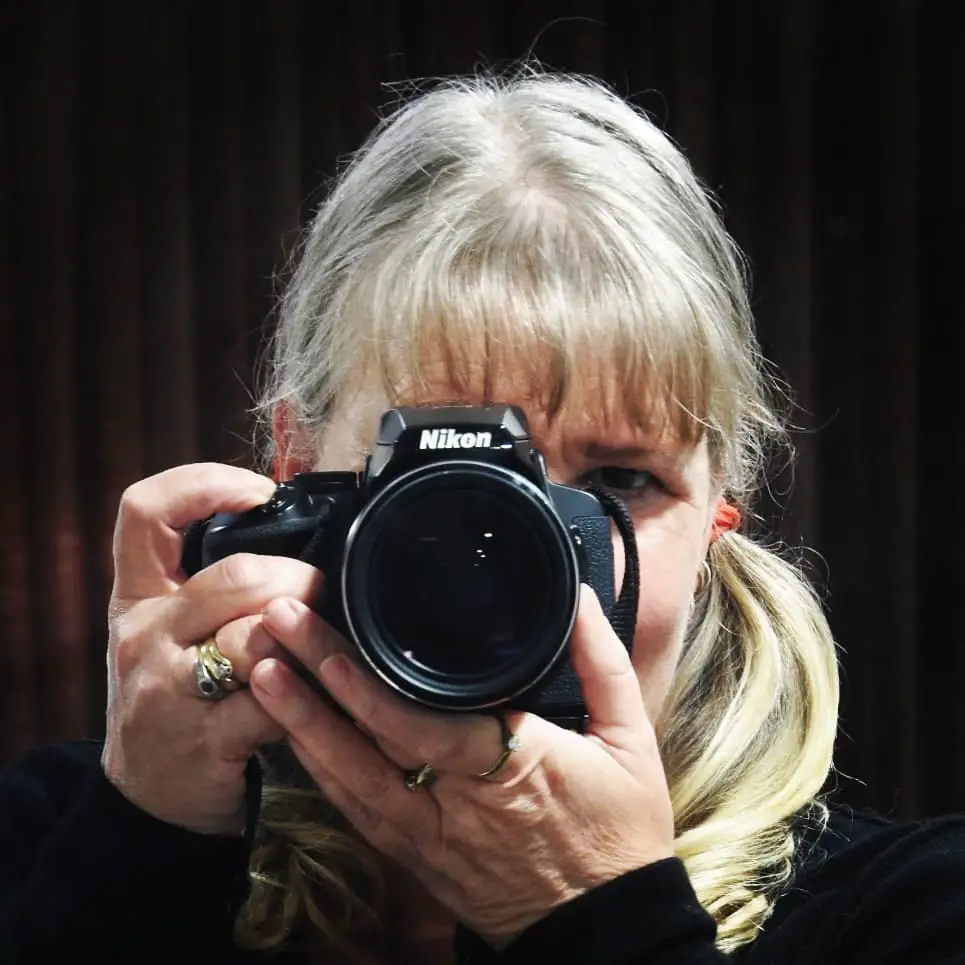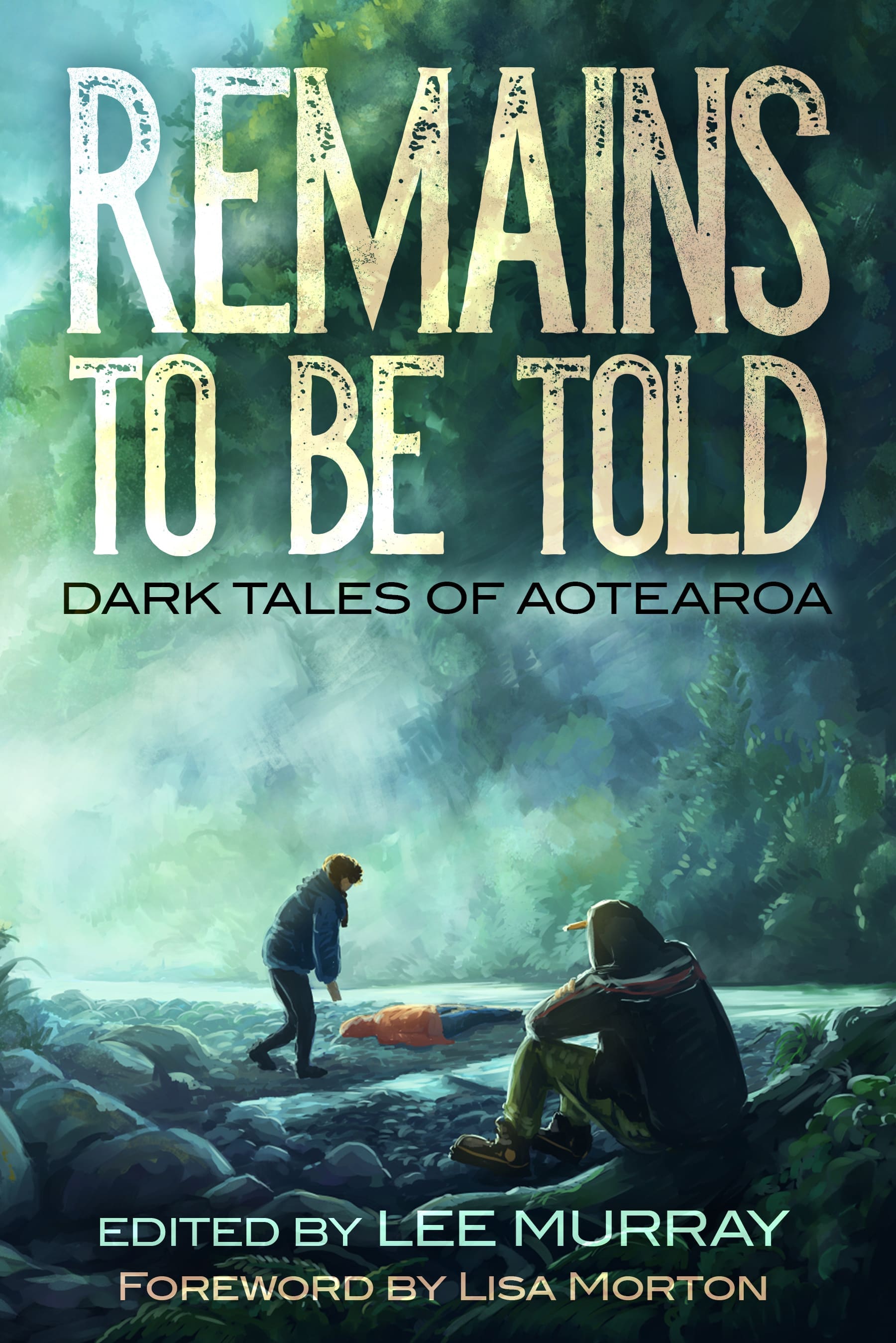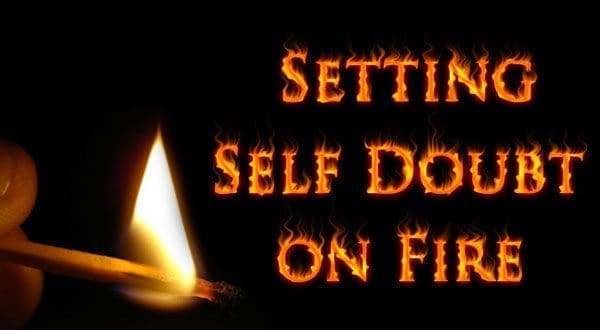REMAINS TO BE TOLD – An interview with Kiwi author Jacqui Greaves
REMAINS TO BE TOLD – An interview with Kiwi author Jacqui Greaves
In this unique interview series, we chat with the contributors of Kiwi horror anthology Remains to Be Told: Dark Tales of Aotearoa, edited by five-time Bram Stoker Award-winner Lee Murray (Clan Destine Press, 1 October).
Today, we welcome author Jacqui Greaves, whose historical short story “Fires of Fate” appears in the anthology.
Tell us about your story in the anthology.
One of the walls of the Āpiti Tavern used to feature a blown-up photograph of a settler woman doing her washing. It was taken some time in the 1890’s, and the subject was Angela Jacobs. Behind Angela is a rough wooden fence, rumoured to hold ghostly faces. In the background is a glimpse of remnants of a burnt forest.
My inspiration for “Fires of Fates” grew from that photo. Very little is known about Angela, or most other women settlers. Women gained the vote in Aotearoa in 1893, around the time the photo was taken. By that time, large swathes of the country had been cleared for agriculture by fire. Āpiti was one of the last remaining pockets of virgin forest left in the Manawatu.
One of my favourite books growing up was a collection of myths and legends. It intrigues me how myths and legends from around the world share similarities. They are stories, which explain fundamental truths.
I also love things being out of place: whales swimming in the sky; historical characters in the wrong time; elves in space. So, I introduced powerful women in the form of the Fates and Furies from Greek mythology into the ongoing conflict between Tāne-nui-a-Rangi and Tāwhirimātea.
In Greek mythology, Prometheus stole the secret of fire from the gods and gifted it to humans in the form of a fire-drill. In Māori myth, Māui did much the same thing. In the process, he required the assistance of Tāwhirimātea, and fire ended up being stored in Tāne’s trees–to be released using a fire-drill.
Brownie is the voice of so many men I’ve met. By the simple biological accident of being born, and recognised, as men, the Brownies of this world have rights and privileges never afforded to the Angela’s. The Brownies are not clever and they’re not brave, but they think they are. In “Fires of Fate”, despite the evidence of his own experience, Brownie believes he is a master of fire. The Gods disagree, and as for Prometheus, his punishment is meted out by birds of prey.
 What, in your view, are the core elements of Aotearoa horror? What makes Kiwi horror unique?
What, in your view, are the core elements of Aotearoa horror? What makes Kiwi horror unique?
Aotearoa is isolated. This distance and separation from the rest of the world has resulted in a unique environment. Where both land and waters are violent. This country is beautiful, but deadly. Only the naive wander our wild areas unprepared. Everything about the country is imbued with meaning – nature, place, and people. Much violence has been perpetuated in our short human history. Our stories find their birth in myths and legends, waves of immigration, the consequences of colonialism, and the landscape. This isolation, this violence, this history, this land, contribute to an underlying darkness. Those of us who live here, who call this place our home, embrace that darkness in our sense of humour, in the way we dress, in our resilience, and in our stories.
Would you like to share a paragraph from your story?
To Brownie’s surprise, the woman stayed right where she was. Her eyes met his and he gasped. As a rule, he was all in favour of the female-kind, and the soft bits they hid beneath those skirts of theirs, but something about this one made his skin crawl. Her eyes were as dark as Wayne’s glass of stout, and her smile? – well, he could only describe it as dangerous. If he wasn’t surrounded by his mates, he might have whimpered. Instead, he figured he’d curry favour with Jim and croaked, “You heard the man, get out.”
What draws you to horror?
This is only my second horror story. Funnily enough, I’ve never been a huge fan of horror. I hate things that make me jump or involve torture or mutilation. The horror I do like is the type that’s just off kilter, where things and people are out of place. I usually write sci-fi and fantasy, often with dark themes. It’s quite a different thing to write horror. The tension and stakes need to be wound up so much tighter, and the pacing is critical.
Horror is affective, which means it is different for all of us. What book/author scared you most, and why? Or which horror book do you wish you’d written?
You’re asking the wrong person! I just don’t read things that scare me too much. As a woman living alone, I have no desire to scare the shit out of myself! If I’m going to write more horror, then it’s going to be vengeful.
Name a Kiwi urban myth / folktale / historical event that needs to be a horror story.
On our way to Australia by ship, my parents, brother and I sailed out of Wellington the day after the Wahine Disaster. The shipwreck has always held a macabre fascination for me. If I wrote the story, it would feature Tangaroa, denizens of the deep, cursed cargo and passengers who shouldn’t be there.
Can you suggest other Kiwi dark fiction/ horror we should be reading?
Tabatha Woods. I really enjoyed her short story collection Dark Winds Over Wellington.
Tamsyn Muir. Her Ninth House series is a magnificent blend of science fantasy and horror.
What’s coming up for you on the writing front?
I’ve just put together a collection of short stories, Letters From Elsewhere. It’s an unusual cocktail of fantasy, science fiction and erotica shaken together in weird and unexpected ways.
I’m also working on a series of novellas, featuring menopausal assassins who travel the universe in sentient spaceships.
Thanks for stopping by, Jacqui!
 Featuring uncanny disturbances, death, and the dank breath of the native bush, Remains to be Told: Dark Tales of Aotearoa is an anthology of dark stories and poems mired in the shifting landscape of the long white cloud, and deeply imbued with the myth, culture, and character of Aotearoa-New Zealand. Laced with intrigue, suspense, horror, and even a touch of humour, and comprising a range of subgenres, the volume showcases some of the best homegrown and Kiwi-at-heart voices working in dark fiction today.
Featuring uncanny disturbances, death, and the dank breath of the native bush, Remains to be Told: Dark Tales of Aotearoa is an anthology of dark stories and poems mired in the shifting landscape of the long white cloud, and deeply imbued with the myth, culture, and character of Aotearoa-New Zealand. Laced with intrigue, suspense, horror, and even a touch of humour, and comprising a range of subgenres, the volume showcases some of the best homegrown and Kiwi-at-heart voices working in dark fiction today.
Includes stories and poems by Neil Gaiman, Owen Marshall, Gina Cole, Tim Jones, Lee Murray, Dan Rabarts, Marty Young, Debbie Cowens, Paul Mannering, Tracie McBride, Kirsten McKenzie, Jacqui Greaves, Nikky Lee, William Cook, Bryce Stevens, Kathryn Burnett, Celine Murray, Denver Grenell, Del Gibson & Helena Claudia. Foreword by six-time Bram Stoker Award-winner, Lisa Morton.
Remains to be Told: Dark Tales of Aotearoa is published by Clan Destine Press Australia with the kind support of Creative New Zealand. Original cover art by Sir Julius Vogel Award-winner, Emma Weakley. https://www.clandestinepress.net/products/remains-to-be-told
Jacqui Greaves has lived an adventure-filled life, spanning a range of careers and countries. She’s wrangled kindergarten children, driven buses, researched humpback whales, spoken at the United Nations, visited Antarctica, and farmed deer. These days she writes strange and sometimes sexy fiction. Jacqui has so far published a novel, two novellas, numerous short stories and a bunch of scientific papers. Her current work features a murderous menopausal space-farer – it’s not meant to be autobiographical. Jacqui doesn’t believe in happily ever after, so shares her house with a cat.
Website: https://www.jacquigreaves-author.com/
Facebook page: https://www.facebook.com/JacquiGreavesAuthor
Mastodon: @[email protected]
Instagram: https://www.instagram.com/nzjacqui/
- About the Author
- Latest Posts
The Horror Tree is a resource for horror authors which was created in 2011. The main goal when starting the site was to include all of the latest horror anthologies and publishers that are taking paying submissions. A resource useful for both new and experienced publishers alike looking for an outlet for their written material!













